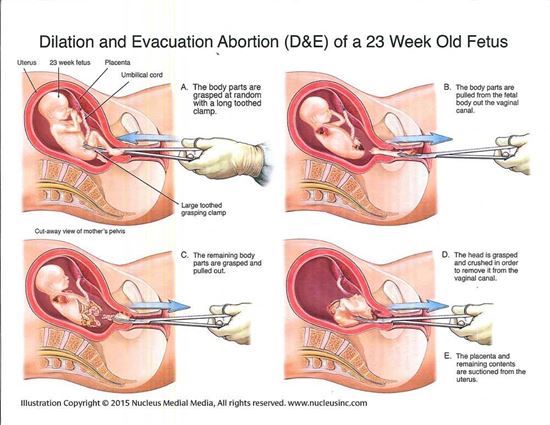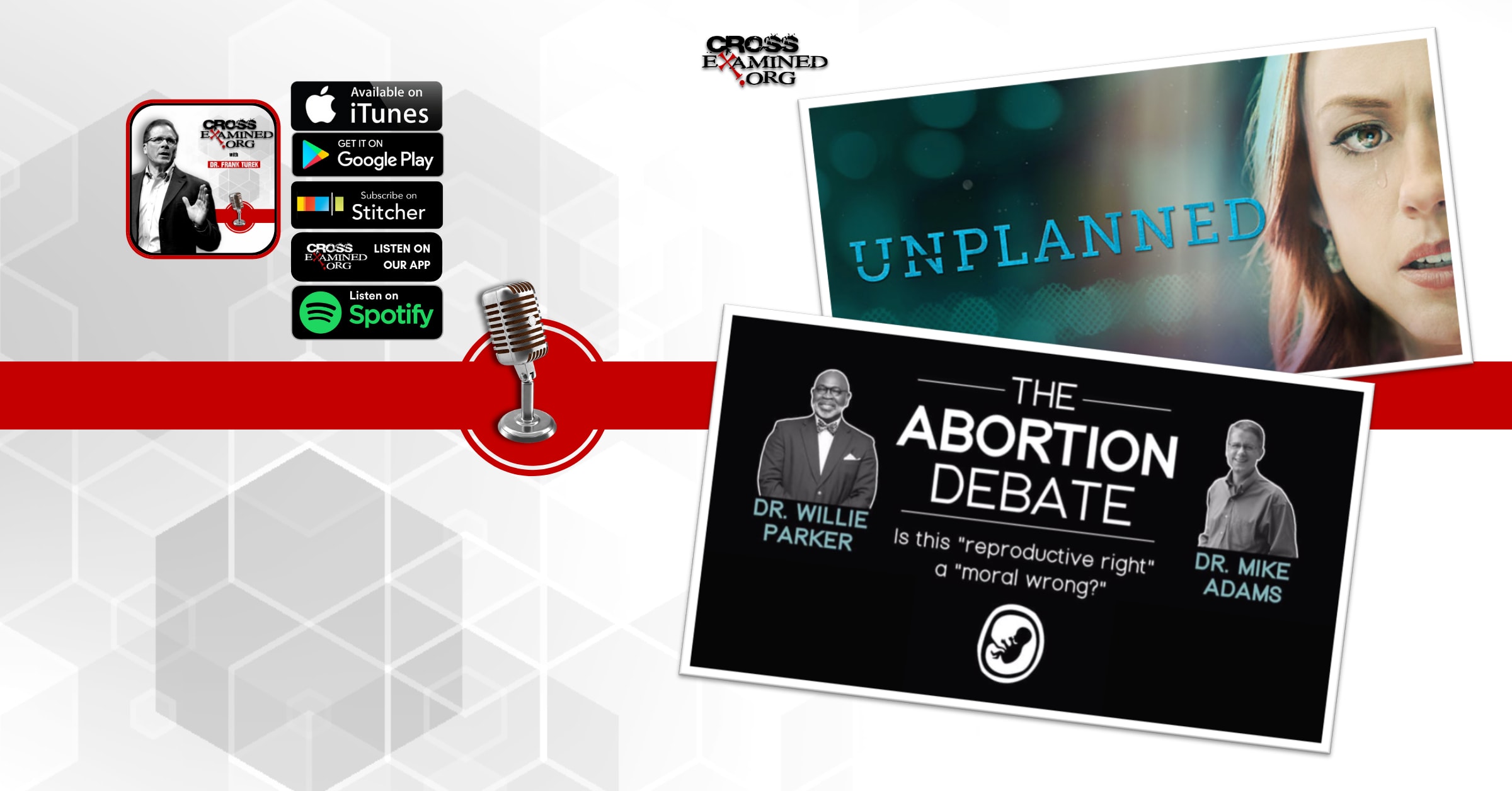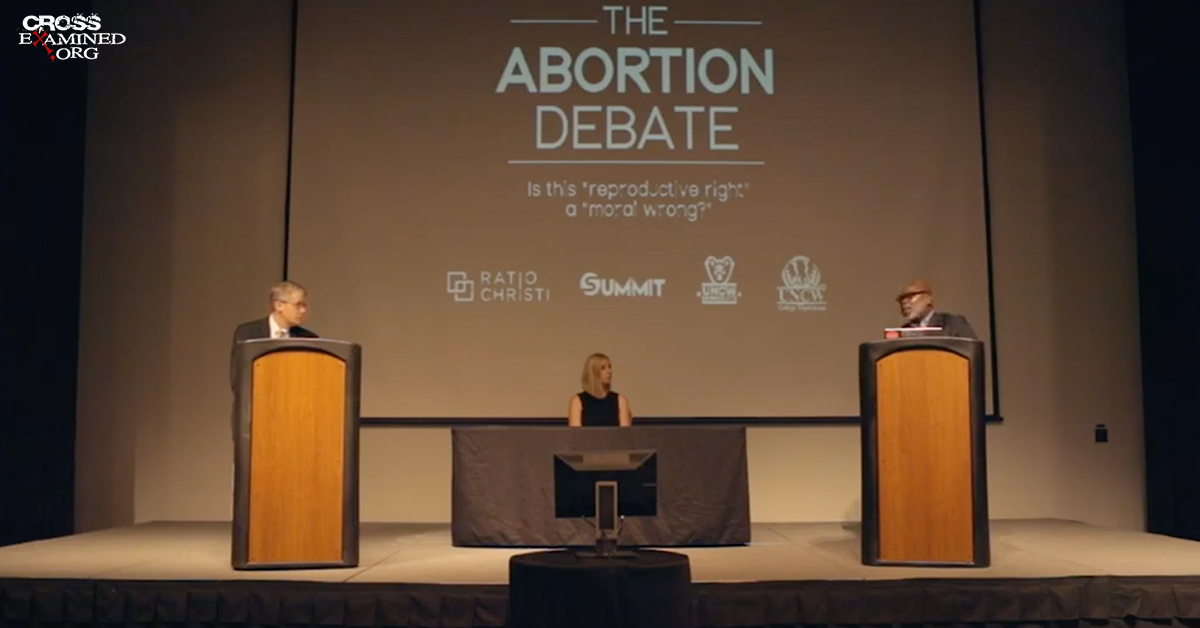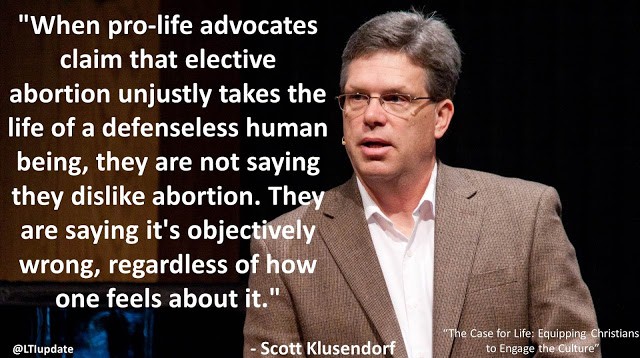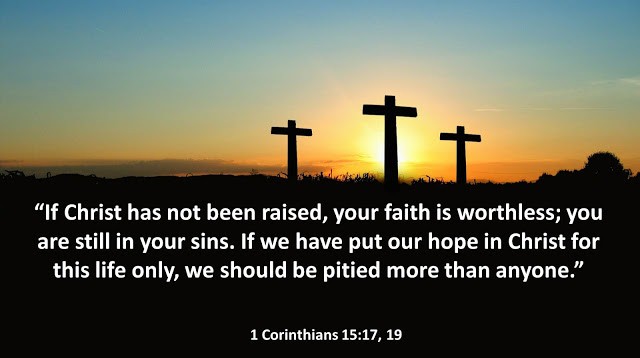Forty-six years ago today, the landmark court case we now know as Roe-v-Wade legalized abortion in America. Some think the case is “settled law.” But those of us, who value every human life, don’t see it that way. Roe-v-Wade no more settles the moral question of abortion than the infamous Dred Scott decision “settled” the idea that slaves had no right to U. S. citizenship. But what is the most effective way to convince people of that truth? How do we make a case for life in a way that cannot be dismissed as a simple “religious opinion”? We have an obligation to make a reasoned case for life. But we can also use the power of pro-life images to make that case hit home.
The Case For Life
Several years ago, a local group asked me to give a presentation on how to connect Christian apologetics and the pro-life cause. My connection to the Life Training Institute (LTI) made that task an easy one.
At LTI, we use science and philosophy to show what the unborn is, why it is valuable, and why that makes taking its life a grave moral wrong. The argument is not in the least bit “religious.” It is a rational and reasoned case that points to the most basic of all human rights — the right to life. As I told the group, the case we make is perfectly compatible and consistent with what the Bible teaches. And that is just one more reason to believe the Bible is a reflection of the truth about ultimate reality.
Tell And Show
The presentation I used started with science. I offered the plain, scientific evidence for when life begins that you can find in any embryology textbook. This isn’t a mystery. It begins at the moment of conception.
Next, we use basic philosophical reasoning. We show that there is no difference between the person you are today and the embryo you once were. Certainly, there is no difference that justifies taking your life at that earlier stage in your development.
Finally, after making a reasoned case for our position, we warn our audience that we are about to show a 60-second video clip. There is no narration on the video. It is nothing but a series of images that show the aftermath of abortion in all three trimesters of development.
We do this carefully and compassionately. We warn the audience that the video is graphic and give anyone who wants it a chance to leave the room or cover their eyes before we show it. And then we play this:
This Is Abortion Video from Life Training Institute on Vimeo.
Repercussions
The presentation I gave that day was no different than any other I’ve given. Nor was the reaction to it. But several months later, a friend from the group told me a story about what happened afterward.
He said that he had never seen the argument against abortion presented in quite the way I presented it. It had moved him to put up a Facebook post about it with a link to the video I had shown. No big deal.
But there’s more to the story.
My friend’s post drew some attention and discussion. Little did he know that some of that attention was from a European lady who my friend had never met or spoken to. He and she just happened to be bird lovers and members of the same online group of folks who shared that interest. The lady was an abortion supporter. She was also an atheist.
The images had horrified her.
Seeing Is Believing
Because the post had provoked her, she contacted my friend through the bird-lover group to challenge him about posting it. This initiated a back-and-forth discussion that lasted for weeks.
Eventually, the bird-loving lady not only changed her view on abortion; she was also compelled by my friend’s reasoning to take things a step further. He convinced her to reconsider objections to Christianity itself. By the time he told me the story, the European lady had become a Christian. She was soliciting my friend’s advice about how to approach her “hard-core atheist” son to invite him to do the same.
All because she saw an image.
One Thousand Words
Some people are impervious to careful arguments. For whatever reason, they refuse to consider the logic of the pro-life position. But even if those pro-life arguments fall on deaf ears, the impact of video can be monumental. The European bird lover is not alone. The same thing happened to Ruben Navarette.
In August of 2015, Navarette saw the Planned Parenthood videos that had leaked earlier that summer. For him, that changed everything. He wrote an article on the Daily Beast website explaining why the videos made him question his “pro-choice” position. Ruben Navarette had been a supporter of abortion rights for 30 years. But seeing what abortion is and what it does made him reconsider his position.
Pictures do something words never could.
The Power To Persuade
We use horrifying images in driving classes to convince teens of the dangers of texting and driving. We show before and after images of methamphetamine users to see where drug abuse leads. The state of Wisconsin recently began airing disturbing videos to boost awareness of sex trafficking. And who can ever forget the images they’ve seen of the Holocaust death camps?
We use images because they’re effective in making important points.
Seeing injustice has a way of connecting our intellects to our emotions. The power in that connection is what compels us to change our behavior. Images allow rational human beings to see exactly what abortion is all about.
Thoughtful And Effective
I would never advocate shoving pictures of aborted children in the face of an unsuspecting observer. It’s just plain rude. And while I understand the motivation to do that, I also know that shock value can rebound into anger and dismissal.
I don’t want to be rude, and I don’t want to shock people. But I will keep showing images of abortion because my goal is bigger than that.
I want to make people understand, through reasoned argumentation, what abortion actually is and why it’s wrong. After 46 tragic years, I want them to see the reality that Roe-v-Wade has unleashed on otherwise civil society over 60 million times. I want to appeal to their humanity by connecting their heads with their hearts. I don’t just want to change their personal feelings about it. I want to motivate those who condone abortion to change their minds and behaviors.
I don’t just want to talk about it. And I don’t just want to make people look at it.
I want to make it stop.
Recommended resources related to the topic:
The Case for Christian Activism (MP3 Set), (DVD Set), and (mp4 Download Set) by Frank Turek
Legislating Morality (mp4 download), (DVD Set), (MP3 Set), (PowerPoint download), and (PowerPoint CD) by Frank Turek
Legislating Morality: Is it Wise? Is it Legal? Is it Possible? by Frank Turek (Book)
Bob Perry is a Christian apologetics writer, teacher, and speaker who blogs about Christianity and the culture at truehorizon.org. He is a Contributing Writer for the Christian Research Journal and has also been published in Touchstone, and Salvo. Bob is a professional aviator with 37 years of military and commercial flying experience. He has a B.S., Aerospace Engineering from the U. S. Naval Academy, and a M.A., Christian Apologetics from Biola University. He has been married to his high school sweetheart since 1985. They have five grown sons.
Original Blog Source: https://bit.ly/31f9JYM











